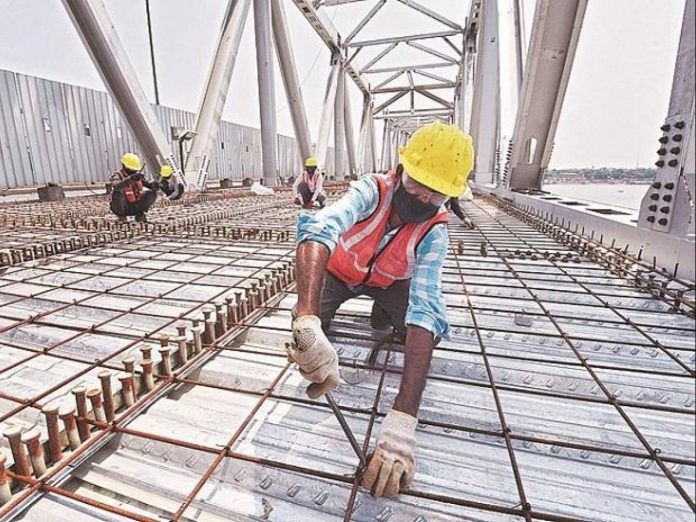This article is written by Veena Chandra, a student of HNLU, Raipur.
Table of Contents
The Speaker
Nitish Bagri
He is an experienced Proprietor with a demonstrated history of working in the legal services industry and has represented the State of Rajasthan at the Hon’ble Supreme Court of India. He has also been a panel lawyer for various companies and is currently standing counsel for Dainik Bhaskar, at Rajasthan High court and Shriram EPC. He is skilled in Legal Assistance, Arbitration, Dispute Resolution, Legal Research, and Litigation and is a strong entrepreneurship professional with a Bachelor of Law (L.L.B.) focused on Litigation from Bharati Vidyapeeth.
The Host
Mayur Sachdeva
He is a spirited, enthusiastic and passionate entrepreneur, a qualified law graduate from D.E.S Law College with a demonstrated experience of Editing and Publishing books for 6 years as Proprietor of RAJASTHAN LAW HOUSE (1st Legal Publishing House of Rajasthan) established in 1958. He is the author of 100+ Published Law Books on different subjects of State and Central Laws in English and Hindi Languages. He has a sales experience of 1 million + law books. He currently working as a Head of Sales in Lawsikho.
Question 1: What is Labour law and how would you like to deal with it throughout the session?
Answer 1: So basically labour law is social welfare legislation which had its beginning from the Constitution and these labour laws are of three types:
1) The Legislations which are enacted by the Central Government and enforced by the Central Government.
2) The Legislations which are enacted by the Central Government but are enforced by both Central and State Governments. eg Industrial Disputes Act, Sexual harassment at workplace Act 2013, Payment of wages Act and 13 more legislations into this list.
3) The Legislations which are enacted by the Central Government and enforced by the State Government which are basically related to the day to day working and holidays of the workers which are in total 51.
In 2013 there was a proposal to scrap these 51 legislations and bring about four important legislations in its place which are Codes of Wages, Code of Industrial relations, Code of Social benefits and Code of Safety Benefits but these are yet to come into the picture.
So the related topics will be dealt with through the session.
Question 2: What is the situation of the layoffs that are taking place in the current scenario?
Answer 2: The Central Government has issued an advisory for this particular time and it is a general direction in nature and it is not compulsory. Most of the companies do follow the advisory of the government but depending on the circumstances of each and every industry it can be moulded into best industry standards.
The very first thing that takes place is that the State governments are agencies which will issue guidelines and issues directives’ regarding layoffs but it has to be understood in a much wider term. Generally, Layoffs are understood as the mass reduction of labourers or workers from the industry, however, it of two types sometimes it is of a definite period and sometimes it is for a temporary period.
So in this period keeping in mind the humanitarian grounds as well, the industries have to look into this issue and reduce the labourers if in case that particular person is not productive for the business, because the sole motive of a business is to save its business and generate the maximum amount of productivity. So if in case the business was earlier having around 100 labourers for one particular work then in the current scenario if he is productive to the business then he/she can be issued layoff but yes, the important thing is that this term has to be understood in a much wider sense in the times of COVID.
Question 3: If new startups don’t have money to pay to their employees then how should they go about it?
Answer 3: We need to understand that these are tough times and the advisory of the movement is not a law that is issued but then if an Industry is threatened with that the whole business hose will get scrapped then, it will be not admissible according to the law. If in case a startup has resources and will be able to keep his employees then definitely they should keep them, because as the saying goes that if you care for your people they’ll also care for your industry. But if you are not able to retain those extra people and the business might not be working, then definitely you should go by the best possible practice. You’ll have to go with the best industry standards according to the current scenario while issuing layoffs. If the industry standards say that a certain technique becomes obsolete after a certain period of time and a certain amount of people can’t work in it, then there is no harm in issuing layoff to certain workers in order to maintain the sanctity of the industry.
Startups are basically funded by business houses so the management of these business houses is answerable to the investors and the answer is to show that what is the productivity and what is the profit margin so in order to sustain the industry you have to take a hard step, unfortunately, these are hard times and steps such as these are harsh and if the good times had been there then the scenario may have been a little different.

Question 4: Is it there an opportunity for the labour lawyers in these tough times? Can there be recourse action that can be taken by the labourers or employees who have been laid off in such a situation where they can claim some sort of compensation from these startups or the industries who are laying them off?
Answer 4: So when the tough times come, the opportunities for industries may not exist for the similar industry but yes since the layoff, termination or retrenchment has increased in these tough times, the litigation which respects labour laws is bound to skyrocket in next 6-8 months.
This will be coming from not only from the employees’ side but will also come from the employer’s side as well and since Industrial Dispute Act is applicable to both, so yes the dispute can be filled from the side because sometimes even the employers will have to go to labour commissioner and prove that the procedure adopted by the employers was done lawfully, hence Labour Litigation will see at least 40% rise as compared to the normal scenario from both the sides, industry as well as labourers.
Question 5: What happens to the people who are working in an Emergency situation?
Answer 5: Workplace has a very vast definition and so, in a nutshell, anything that is done in furtherance of the performance of your task in the place you are employed also accounts to be your workplace. Hence the State and the Central Government has taken adequate steps in furtherance of providing compensation to these people who are working in the emergency situation.
Question 6: How would you address the issue of pay cuts?
Answer 6: For the provision of pay cuts one should look into their employment contract. Suppose the contract gives the power to the employer to take any action when tough times prevail, then definitely he can do so but he can’t stop the payment but it cannot be deducted it has to be given and if they don’t pay your salaries or wage then there is a specific provision under the labour laws. In these times most of the industries are cutting the salaries but have made provisions for adjusting it in the later part of the year, Similarly even the government has also made provision for the pay cuts but such cuts will be adjusted in the later part of the year when the inflow of government revenues takes place.
Question 7: In the times of work from home scenario, if a ceiling fan falls over a person’s head then can he be compensated for the same?
Answer 7: In order to proceed with it you need to look into the Fatal Accidents Act and Claims Act. The prerogative of such an incident is that the person must be working for the company at the company’s workplace or maybe a place where the employer has decided or made you do work. It can be on the streets also. So if in such a case the person meets with an accident then the company or the industry has to compensate.
Proof of such work cannot be asked for by way of camera recording or anything of that sort because that will be a breach of privacy of that person especially when that person is your employee but this all depends on case to case basis.
Question 8: There are some companies who are taking screenshots for their workers every 5 minutes, so much is it a breach of privacy of those employers?
Answer 8: So basically there is no provision that backs that employers have to take screenshots of the people from time to time. It is solely based on the company who is carrying on such an activity, which does not hold any value in the eyes of law.
Question 9: Can you let us know how does the Prevention of Sexual Harassment Act work now when the people are working from home?
Answer 9: This Act emerged after the Vishakha Judgment and the definition of the workplace according to this activity is mentioned in section 2(o) of the Act. It states the meaning as any place visited by the employee arising out of or during the course of employment including transportation by the employer for undertaking such journey or a dwelling place or a house would paramount to a workplace. So for example: if an employee passes some unjust or misbehaved comments against women as per the provision of the POSH Act during the work from home video meeting then in such a case the Act would apply and the employee would be liable under the Act.
Question 10: What happens to the strict attendance policy where some organizations have a biometric system for attendance?
Answer 10: Since there is an advisory issued by the government as not to mark the attendance through biometrics and work from home advisory is issued then in such a case there is no such official record of the attendance. However, to keep the track of a new system of marking it through WhatsApp has been devised where the attendance is marked through it. Biometrics are not stringent penal provisions and it can be relaxed in the preview of the current situations.
Questions from Viewers
Question 1: Sir, can you discuss the four codes and its pros and cons?
Answer 1: These four codes are scrapping the previous prevailing 44-51 laws except maybe POSH Act. These laws are being scrapped and will be brought in total four parts the names of which are as follows:
1) Code on Wages, 2019, this will be scrapping Minimum Wages Act, Payment of wages Act, payment of bonus Act, equal remuneration Act.
2) Labour Code on Industrial relation, this will be scrapping Trade Unions Act, Still employment standing Act, Industrial Dispute Act.
3) Labour Code on Social Security and welfare, they will be scrapping up nine Acts.
4) Occupational health and working conditions in 2019 by which 13 Acts will be scrapped.
By doing this the government is trying to make the labour laws more practical. The pros of this will be: If these acts are brought then the demand for the labour lawyers will increase.
Question 2: What is fairness to determine the basis of the domestic inquiry?
Answer 2: Domestic inquiry gets it to power from the Labour law and in order to determine the fairness of the domestic inquiry the fair principle of natural justice is followed where both the parties should be given a chance to speak up their matter.
LawSikho has created a telegram group for exchanging legal knowledge, referrals and various opportunities. You can click on this link and join:
 Serato DJ Crack 2025Serato DJ PRO Crack
Serato DJ Crack 2025Serato DJ PRO Crack










 Allow notifications
Allow notifications


